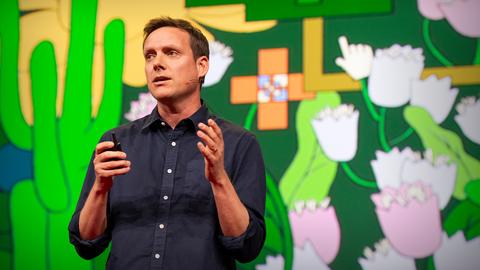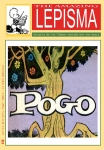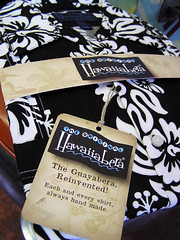I've been recording my favorite NPR segments for 14+ years. (And i've been grabbing stuff from the radio waves with reel to reels, 8 Tracks and cassettes since the early 70's). Needless to say, the idea of recording stuff to later compile for future listining and share with others has been with me for as long as I can remember, and now that we're officially in the Wired Age it's got a name: Podcasting.
The Podcastings formula takes us one step closer to an idea that's been bouncing around in my head since my first reel to reel recorder I got back in 3rd grade, 1969. My version of Podcasting, or the way I like to think of it - is a subscription based programable satelite radio that offers an ala-carte style menu of all things audio. The cool part would be the fact that it would not be a stream but a daily, selfcontained program. So, instead of me having to go to the NPR web site and hit the various featured programs, (This American Life, Morning Edition, Selected Shorts, The World, Fresh Air, just to name a few of my favorites), the daily Stardate segment or today's forecats, I'd have all of my favorites in my own custom radio program automatically downloaded to my iPod each morning and ready to play before I've even had my first cup of coffee. That's right, no commercials, no daily body count from Iraq, just the positive stuff that makes me happy to be alive. (I save the the real world perspective for Sundays NY Times.) Now that's something I'm willing and ready to pay for.
Here's Wired Magazine's take on one of Podcastings forefathers, Adam Curry:
Although he’s famous for having been an MTV VJ, Adam Curry is better known these days as one of the fathers of podcasting, a rapidly growing technology that allows anyone to subscribe to and automatically download audio content feeds to an MP3 player.
Curry's own podcast, Daily Source Code, is one of the better known shows in the young genre and is often cited by aficionados as an example of everything that's great about the technology.
Yet on his show, Curry is known for occasional fumbles with the microphone, pregnant pauses and sundry hiccups in what is otherwise seen as a valuable daily look at the latest and greatest in podcasting. The question is, if he's having a bad-equipment day, could he lose his audience?
"Everyone has a different level of karma," said podcaster Dave Slusher of the dangers of producing imperfect podcasts. "He has a lot banked up, but most people don't. In fact, as we started (Evil Genius Chronicles), the whole reason that I edited out the stuff he leaves in was because I figured that while people would listen to him do it, no one would when I did."
In October, a Google search would have returned fewer than 6,000 results for "podcasting." Today, that number is 744,000, and it seems nearly that many podcasts are available. But as with blogs, a sharp divide exists between the relatively small number of good podcasts and the vast number of bad ones, or at least ones that weren't around long enough, or don't update often enough, to attract an audience.
To some, podcasting is too new to judge, especially in the context of a medium that could be attractive to the mainstream. "To me, it's sort of like evaluating an ecosystem when there are three blades of grass pushing up through the dirt," said Doc Searls, a popular blogger and podcasting evangelist. "I think it's the future of whatever the people will replace radio with.... It's a way for the demand side to supply itself."
The medium's nascence contributes to the feeling that in order to get an audience, podcasters almost have to be one of the cool kids. "Content-wise, it tends to be very cliquey and cultish," said Carl Franklin, co-producer of the widely listened-to podcast DotNetRocks. "There's a huge underground feeling to the shows that are popular right now."
Still, while the bulk of podcasts focus on technology or politics, a growing number cover other worthwhile topics, even as the roster of bad ones grows exponentially.
"The things that grab me," said Slusher, "are some combination of interesting subject, amusing delivery and voice, uniqueness and candor or honesty in emotion." He said he enjoys The Rock and Roll Geek Show, produced by San Francisco musician Michael Butler, in which Butler talks about the life of bands and other music topics.
Slusher also said he regularly listens to Reel Reviews, Mike Geoghegan's podcast about movies. "Every so often, he picks a movie, announces it upfront and gives people time to re-watch it," Slusher said. "He does a super in-depth show."
Andrew Leyden, president of PenguinRadio, which maintains PodcastDirectory.com, said he particularly likes Whole Wheat Radio, a Northern Exposure-esque show produced by a married couple who talk about life in their small Alaskan town, as well as play and review music.
Leyden also touted the comedy talk show The Dawn and Drew Show. "They're definitely outrageous," he said. "They definitely show you why the FCC does not regulate podcasting. They sometimes go over the top a little bit."
Corie Schlegel, who writes PodcastReviews under the name Kirowan, said he enjoys Indie Feed, which has two hosts who intersperse songs from independent bands with brief commentary.
For core podcasting fans, the most recommended podcasts include the full complement of IT Conversations, Curry's Daily Source Code, Slusher's Evil Genius Chronicles and Kevin Devin's In the Trenches.
Searls said In the Trenches is "down in the bowels of some IT organization, and he talks about his racks and servers, and it's great. All the interesting (IT) stuff is being done by the rank and file. It's not being done at the top of the company."
In any case, podcasting still has a long way to go, given how many of its practitioners fumble with their equipment, bore their audiences and fail to produce regularly. Yet many of those interviewed for this story think podcasting is at the heart of audio broadcasting's future, especially given that recording technology is getting cheaper and podcasting technology will only continue to get easier to use.
"It's a matter of time before it ... changes the nature of speech," Searls said, "because everything (can) become a poddable cast." Franklin agreed, and said given how young podcasting is, it's important to look beyond what's available today to see a day when it will be widely used by public radio, churches, universities, families and anyone else with a microphone.
"Most people misjudge the usefulness of the technology by judging the content," said Franklin. "(They) say, 'Why would I want to listen to this audio blog?' When in fact, the future of the technology has nothing to do with audio blogs."
Thanks to Daniel Terdiman at Wired
Tuesday, January 04, 2005
Subscribe to:
Comments (Atom)



























































